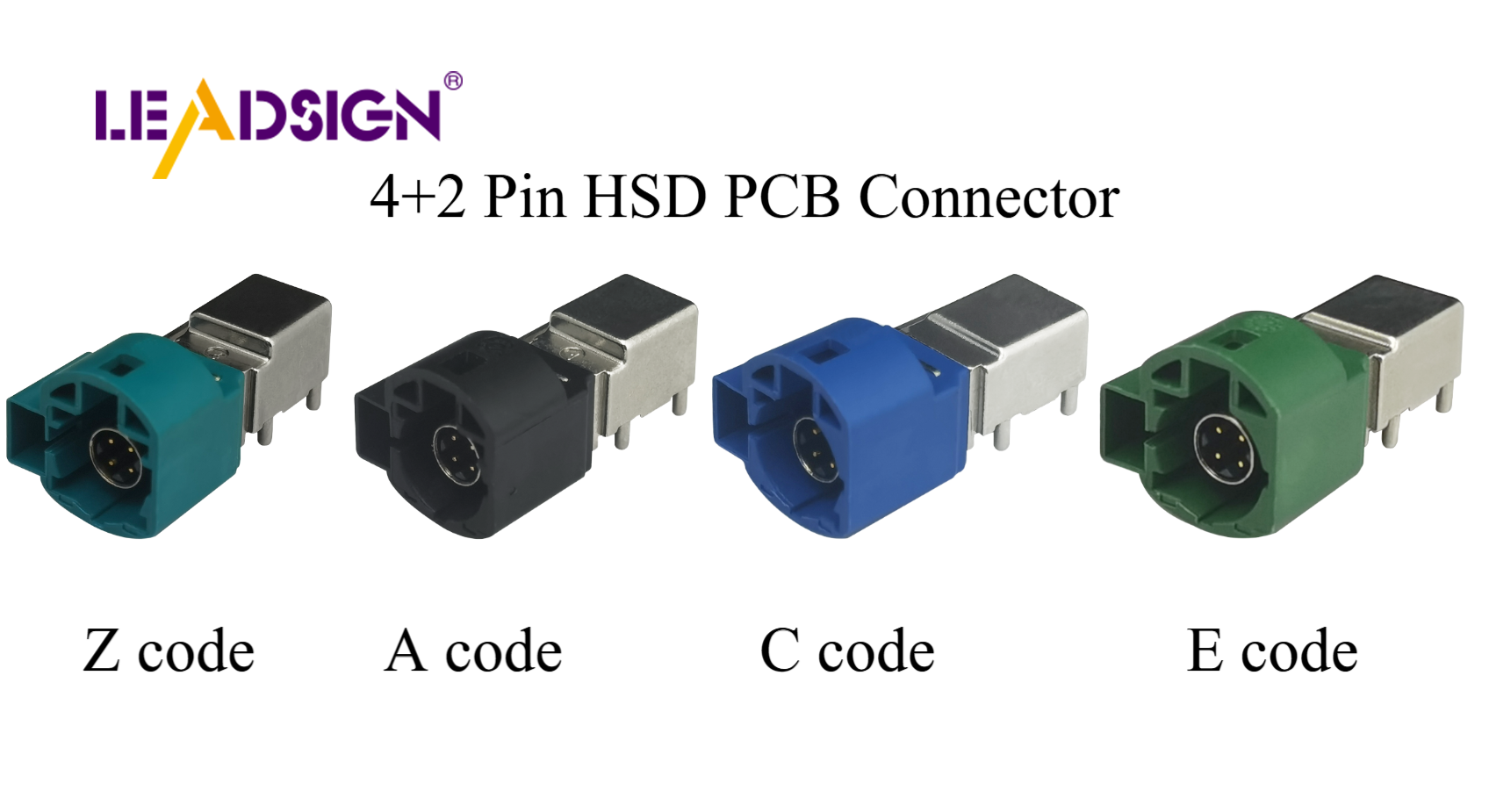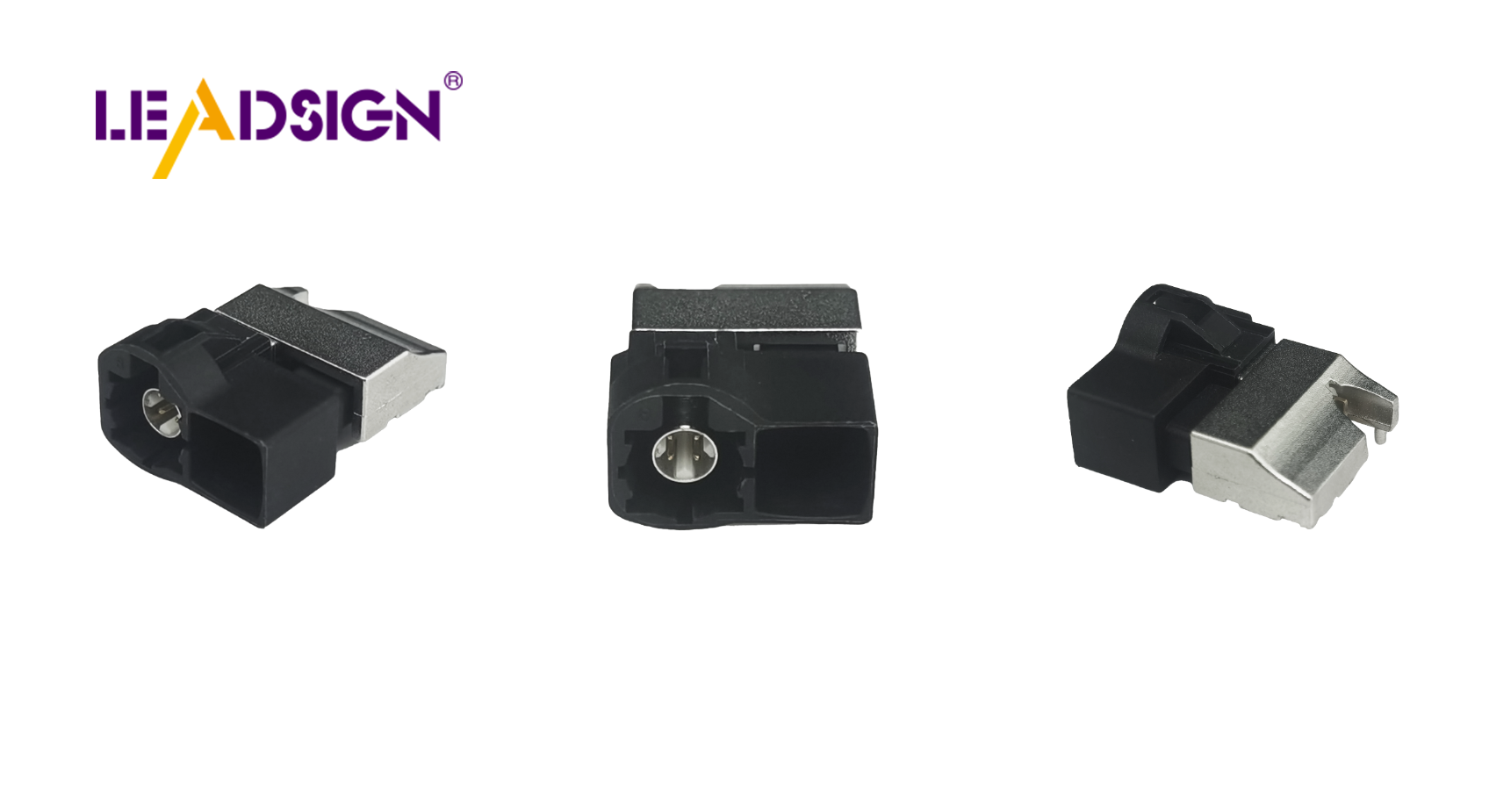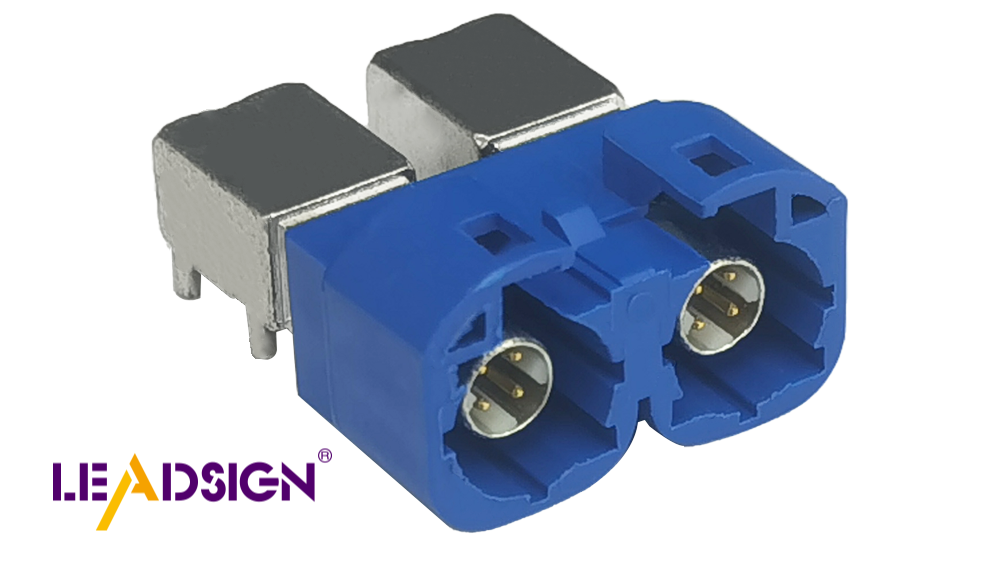The Role of HSD Cables in Modern Auto Harness Connectors

Modern cars have many cool features like cameras and sensors. High-Speed Data (HSD) connectors and cables help these features work. They send data quickly between car parts. These connectors and cables ensure that videos and sensor data operate smoothly. This keeps the car running well and reliably.
Key Takeaways
HSD cables send data quickly and reliably for car features.
They work well in tough conditions like water, dirt, and heat.
Picking the right HSD cable boosts car performance and future use.
What Are High-Speed Data (HSD) Connectors and Cables?
Definition and Origin of HSD Cables
Modern cars have cool features like cameras and smart tools. HSD connectors and cables help these systems work together. These cables were first made in the late 1990s. The HSD Group, started in 1997, created them. They were made to handle new car technology, like electric and self-driving cars. At first, HSD cables were used for radios, cameras, and sound systems. Now, they connect many smart car systems.
Key Features of HSD Cables
HSD cables send data super fast between car parts. They have twisted wires to keep signals clear over long distances. These cables are tough and last a long time in cars. They are easy to install, saving time when building cars. They can handle big files, like 4K videos, with no problem. Their strong connectors stop signal mix-ups, making them very reliable.
Industry Standards and Protocols for HSD Cables
HSD cables follow strict rules to work well in cars. They meet AUTOSAR, ISO, and IEC standards. These cables work with USB, Ethernet, Firewire, and more. This makes them useful for many car systems, like radios and driver tools.
Technical Features of HSD Cables
High-Speed Data Transmission Capabilities
HSD cables send data very fast and without trouble. They use twisted wires to block outside noise from ruining signals. This keeps the data clear and steady, even in tough places. Their strong build helps them handle the needs of modern cars.
These cables are super quick, sending data up to 6 GHz. This speed is great for car entertainment systems, keeping sound and video smooth. They also help safety systems like cameras and radar work better. With HSD cables, smart car features run without problems.
Shielding and EMI Reduction
Ever wonder how cables keep signals clear? HSD cables are great at this. They use strong materials and twisted wires to block interference. This stops electromagnetic noise from messing up signals.
This shielding is very important in cars with many electronics close together. HSD cables stop signals from clashing, so systems work smoothly. From your music player to GPS, everything stays connected and clear.
Durability and Environmental Resistance
Cars face harsh weather, and so do their cables. HSD cables are built to last. They resist water, rust, and dirt, which are common in cars. Their tough design keeps them working for a long time.
These cables also handle extreme heat and cold. Whether it’s freezing or boiling, they won’t fail. Proper installation makes sure they work perfectly, even at high speeds. With HSD cables, you can trust they’ll work when you need them.
Applications of HSD Cables in Automotive Systems

Advanced Driver Assistance Systems (ADAS)
HSD cables help make driver assistance systems safer and smarter. They link sensors like cameras, radar, and lidar together. This helps these devices work as a team. These cables send data quickly, so your car reacts fast. It can handle sudden stops or road obstacles better.
Here’s what they do:
They improve sensor connections for better accuracy.
They cut delays, so safety features act right away.
They make wiring simpler, boosting system efficiency.
From lane-keeping to emergency braking, HSD cables keep these features working well to protect you.
In-Vehicle Infotainment (IVI) Systems
Ever wonder how your car plays clear music and videos? HSD cables make it happen. They send data fast, so music and movies play smoothly. These cables block outside noise, keeping sound and visuals clear.
HSD cables link your entertainment system to cameras and sensors. This makes everything work together for a better drive. They also use little power, saving your car’s battery.
Vehicle-to-Everything (V2X) Communication
In smart cars, HSD cables make communication faster and better. They send data quickly between your car and traffic lights or other cars. This helps avoid crashes and keeps traffic moving.
These cables help cars share info about roads and dangers. With HSD cables, your car stays connected to its surroundings. This makes driving safer and smarter.
Advantages of Using HSD Cables in Auto Harness Connectors
Better Signal Quality and Dependability
HSD cables help car systems work without problems. They keep data clear and steady. Twisted-pair quad cables block noise and interference. This ensures cameras and sensors work well. Their strong design lasts in tough car conditions.
Here’s why they are great:
Differential signaling saves power and keeps signals clear.
Special shielding stops outside noise better than old wires.
Common connectors make sharing data quick and easy.
Feature | Benefit |
|---|---|
High-Quality Material | Twisted-pair quad cables block noise and keep signals clear. |
Strong Build | Made to last in tough car environments. |
These features keep driver-assistance and entertainment systems working reliably.
Works with Modern Car Standards
HSD cables fit perfectly in today’s smart cars. They support safety, entertainment, and networking systems. These cables work with USB, Ethernet, and other protocols. They meet strict rules to ensure they work well in cars.
Evidence | Details |
|---|---|
Follows strict rules | Meets standards for modern car systems. |
Uses common plugs | Makes data sharing fast and easy. |
Tested for safety | Passes tough tests for reliable performance. |
Choosing HSD cables means your car systems will work smoothly together.
Performs Well in Tough Conditions
Cars face bad weather, and so do their cables. HSD cables are made to handle it all. They resist water, rust, and dirt. This keeps systems working even in harsh weather. Their strong design prevents wear over time.
Feature | Benefit |
|---|---|
Durable Materials | Blocks outside noise and keeps signals clear. |
Twisted-Pair Cables | Works well in tough conditions. |
Strong Build | Handles extreme car environments. |
Water Resistance | Keeps working in wet weather. |
Heat and Cold Proof | Performs well in very hot or cold temperatures. |
HSD cables are reliable, no matter the weather or conditions.
Picking the Best HSD Cable
Things to Think About When Picking an HSD Cable
Choosing an HSD cable isn’t just about speed. You need to check a few things to make sure it works well. Here’s a simple guide:
Factor | What to Look For |
|---|---|
Match the cable’s speed to your car’s system. | |
Weather Resistance | Make sure it handles heat, cold, and moisture in your car. |
Space Limits | Pick smaller cables if space is tight, but keep good performance. |
Future Upgrades | Choose cables that can work with new technology later on. |
By thinking about these, your car’s systems will work smoothly with the right cable.
Different Kinds of HSD Cables (HDMI, USB-C, DisplayPort)
Not all HSD cables are the same. Each type has a special job in cars. HDMI cables are great for sending big files like 4K videos. They even have a tough version (Type E) for cars. USB-C cables are small and can connect many devices. DisplayPort cables are best for clear, high-quality screens.
Each type has its own strengths. But they all need matching ports to work. When picking, think about what your car needs most—entertainment, safety, or connections.
Balancing Cost, Quality, and Compatibility
Good HSD cables don’t have to cost too much. They might cost more at first, but they save money later. They last longer, work better, and are easier to install. Their strong signals keep your car’s systems working well.
Feature | HSD Cables | Regular Wires |
|---|---|---|
Starting Cost | Lower because they’re simpler | |
Installation Cost | Lower since they’re easy to install | Higher because they’re harder |
Long-Term Use | Works better for a long time | Wears out faster |
When picking an HSD cable, think about your car’s needs and your budget. Spending a little more now can save you trouble later.
Future Trends in High-Speed Data Connectors and Cables

Faster Speeds and Bigger Bandwidth
The future of HSD cables is exciting and promising. These cables will soon handle faster speeds and more data. The market for high-speed connectors is growing quickly. In 2023, it was worth $10 billion. By 2032, it may double, growing 7.5% each year. This growth comes from the need for faster data and new tech like 5G.
What does this mean for you?
Faster Speeds: Future cables will send data super quickly. This is great for streaming videos or using real-time systems.
More Bandwidth: They’ll carry more data at once, keeping systems smooth.
These changes will keep your car’s tech up-to-date.
Smaller Size and Better Strength
Smaller cables are better for today’s tech-packed cars. Tiny HSD cables will fit tight spaces but still work well. They’ll also become stronger. These cables will handle heat, cold, and moisture better. They’ll last longer, even in tough conditions.
Picture cables that are small but super strong. They’ll handle daily driving challenges with ease. This mix of size and durability will make them a must-have for cars.
Working with New Car Technologies
HSD cables will help connect future car technologies. They’ll link systems like AR navigation, AI tools, and self-driving features. These systems need fast, reliable cables to share data in real time.
As cars get smarter, you’ll enjoy safer and easier driving. From predicting repairs to self-driving, HSD cables will power these amazing features.
HSD cables are very important in today’s cars. They move data quickly and reliably, keeping car systems working well. Their tough build makes them last in hard conditions.
HSD cables help cars "talk" to each other and roads. This talking prevents accidents and keeps driving safer.
Here’s why they’re useful:
They connect cameras and sensors for driver assistance systems (ADAS).
They make music and videos in infotainment systems run smoothly.
They help cars share info with roads and other cars for safety.
Picking the right HSD cable doesn’t just improve your car—it prepares you for the future of smart and self-driving vehicles.
FAQ
How are HSD cables better than regular ones?
HSD cables send data faster and more clearly. They have special coverings and twisted wires to stop signal problems. This keeps them working well, even in tough places.
Can HSD cables survive bad weather?
Yes! HSD cables can handle heat, cold, water, and dirt. Their strong build helps them work well in rough weather and hard car conditions.
Do HSD cables work with older car systems?
Most HSD cables fit both new and old systems. Check your car’s needs to see if they work with USB, Ethernet, or other connections.
See Also
Why HSD Connectors Are Essential for Today's Vehicles
Understanding the Role of HSD Connectors in Automotive
An Introduction to HSD Connectors in Automotive Systems

